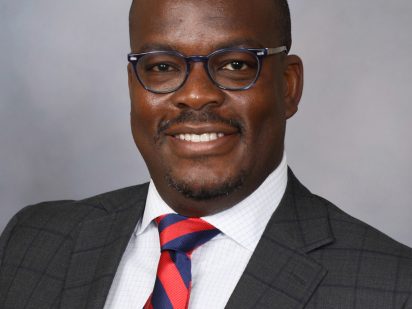Individualized medicine, the concept of tailoring medical care to a patient’s genetic makeup, will be the focus of a community education event October 1 at 7 p.m. at Health Center – Riverside, 1900 8th Avenue SE.
Experts from the Mayo Clinic Center for Individualized Medicine will present “Genomics and Individualized Medicine in 2019,” an update on how individualized medicine is benefitting patients with better diagnoses, earlier interventions, and more effective drug therapies.
Trinity Health, a member of the Mayo Clinic Care Network, is hosting the event, which is free and open to the public. Refreshments will be served. Registration is not required but preferred by calling Trinity’s Community Education Department at 701-857-5099.
As a member of the Mayo Clinic Care Network, Trinity Health has special access to Mayo Clinic expertise, and our physicians can consult directly with Mayo specialists when they feel it would benefit the patient. Other benefits include Health Care Consulting, patient education materials, and the opportunity to host community events featuring Mayo Clinic experts.
“We’re excited to bring this event to the community to explore what is one of the most promising fields in healthcare today,” said Trinity Health President/CEO of John M. Kutch. “Individualized medicine has the potential to transform the way we deliver care and is already having an impact on the types of therapies we provide here at Trinity Health.”
Scheduled to speak are Eric Matey, PharmD, RPh, BCACP, and Tammy McAllister of the Mayo Clinic Center for Individualized Medicine, which has been at the forefront of efforts to translate genomics-based research into clinical practice.
McAllister will present an overview of individualized medicine and Dr. Matey will discuss pharmacogenomics and how it is changing the “one-size-fits-all” approach to drug treatment.
“Pharmacogenomics is a valuable tool in conjunction with other clinical assessment, that lets providers predict, based on an individual’s genomic blueprint, which medications might be effective and which are likely to produce an adverse reaction,” Dr. Matey said. “In general, the goal of individualized medicine is to improve the effectiveness of medications and decrease what I call the trial-and-error approach.”
Pharmacogenomics, according to Matey, is already being used in multiple specialties as well as in primary care settings, with applications available for pain management, mental health, cardiology, urology, and transplant medicine.
A graduate of the Howard University School of Pharmacy, Dr. Matey has been a member of the Mayo Clinic pharmacy staff since 2004. He’s been instrumental in the implementation of a pharmacogenomics consult service at Mayo Clinic and is the pharmacogenomic residency program director for the Mayo Clinic program. As one of three pharmacogenomics pharmacists, he consults with patients and collaborates with providers to improve patients’ medication experience. He’s also involved in a number of pharmacogenomic practice improvement pilots with various departments at Mayo Clinic to assess the utility of pharmacogenomics testing in various patient populations.
A Mayo Clinic associate for seven years, McAllister serves as operations administrator within the Mayo Clinic Department of Clinical Genomics and the Center for Individualized Medicine. She oversees the Center’s translational programs and education program, with a primary responsibility of assisting in the integration of genomic medicine into the Mayo practice. She holds a master’s degree in Health and Human Services Management from St. Mary’s University of Minnesota.

